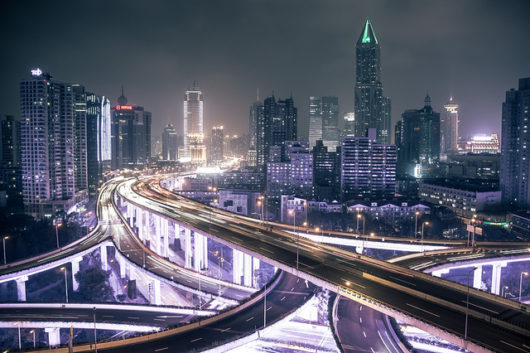Internet Censorship in Russia and China

Internet access has become a vital source of information and awareness around the world in the past decade. While more than 50 percent of the world’s population remains without internet access, countries with large populations such as India and China have a massive and growing user base.
While theoretically advancing their countries not only technologically but politically and socially as well, government restrictions on the right to post or access certain types of information can seriously curtail these benefits. Technology has long been a catalyst for change; however, when restricted, technology can quickly become a tool used for the suppression of human rights such as freedom of expression, free speech and freedom of assembly.
Studies have determined three key points for promoting internet access across the globe: foreign investment, a focus on the community rather than individual access and no government monopolization of the newly emerging market. Today, government monopolization has the potential to become synonymous with internet censorship.
Internet Censorship in China
China has more than 750 million internet users, and every user deals with internet censorship. Known as the ‘Great Firewall,’ China’s series of internet filters is one of the most comprehensive systems in the world, restricting citizens’ access to hundreds of internet sites.
Prior to 2017, many internet users in China were able to circumvent the Great Firewall using Virtual Private Networks, or VPNs, which provide users with browsing capabilities private from their internet providers. However, within the past year, the number of VPNs able to slip through China’s restrictions has decreased substantially.
Government monopolization of news outlets in China has led to internet censorship, sometimes to the point of misinformation. In 2017, new legislation in China required all online news sources to be fully monitored by government-approved editors and writers. This enables the government to block legitimate news stories that run counter to the government’s position while also allowing them to push misinformation and propaganda through news websites, giving them complete control of the country’s narrative.
Internet Censorship in Russia
Russia, another country suffering from serious internet censorship, followed closely behind China in banning VPNs so as to further restrict access to web pages not approved by the government. Without their own Great Firewall, Russia focused on banning specific sites. In 2017, approximately 244 web pages were blocked every day.
Beyond blocking individual sites, or even entire categories such as news outlets, both Russia and China enforce severe internet censorship on individual citizens. For example, in newly enforced restrictions, China requires internet users to register for online communication sites with their real names. This enables them to hold individuals accountable for what is said in previously private settings.
These restrictions are typically put in place under the guise of stemming extremist speech, but they can be, and often are, used to block or discourage any speech that the government wishes to suppress. Russian citizens have seen a drastic increase in threats, physical assaults and imprisonment associated with internet censorship on the individual level. Writing, posting or sharing information and opinions on topics such as Russian-occupied Crimea, religious freedom or Syria can result in up to 12 years in jail.
Censorship: A Human Rights Violation
Those dealing with internet censorship in both Russia and China are in fact experiencing human rights violations. In China, freedom of expression in one of the last safe places—online communities—is closely monitored and used against individuals; in Russia, freedom of expression has become unsafe and restricted to a point worse than anything seen since the Soviet era.
While technology is often viewed as a large component of a nation’s ability to improve the lives of its citizens, internet censorship creates an environment of control and misinformation. More vital to the wellbeing of people and, by extension, the country they live in, are necessary freedoms such as freedom of expression and speech.
Through the restrictions Russia, China and other countries place on their citizens access to information on the internet, governments have the opportunity to trap people in a cycle of misinformation and silence, thereby negating the once-positive effects of internet access.
Overcoming Internet Censorship
Citizens in these restrictive countries are growing stronger in their opposition to this violation of their rights. In Russia, the number of protests concerning freedom of speech, religion and assembly has continued increasing. In China, many citizens continue to find ways to circumvent the Great Firewall.
The freedom of internet access has the potential to overtake the negative effects of internet censorship, so long as individuals, communities and countries continue to work towards honesty and open communication across the globe. Simply through our knowledge of internet censorship in countries such as Russia and China, the growing issue of human rights violations is being more openly discussed, and thereby, empowering many people in those countries to continue to fight against the oppression.
– Anna Lally
Photo: Flickr
